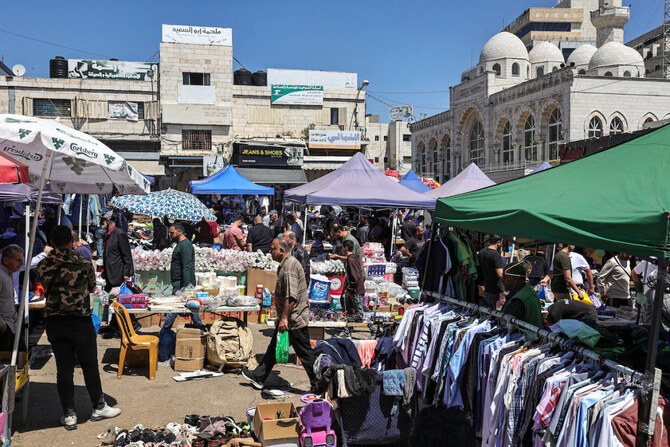CAIRO: The Qatar Red Crescent and the UN agency for Palestinians (UNRWA) signed an agreement on Sunday, with $4.5 million from a Qatari state development fund, to aid more than 4,400 stranded Palestinian workers and patients from Gaza in the West Bank.
“Cash assistance will represent vital support for those displaced who have not been able to return to the Gaza Strip since the start of the Israeli aggression on the Strip last October,” a statement from the Qatar’s state news agency said.
“Thousands of Palestine refugees from Gaza remain trapped in the West Bank, trapped in this crisis situation, stranded from their loved ones and livelihoods,” UNRWA Commissioner-General Philippe Lazzarini said.
Since Israel’s blockade of Gaza began in 2007, movement in and out of the Strip has been heavily restricted, forcing individuals to seek medical care, education, or jobs in the West Bank, while escalating violence often closes borders, trapping those in need of essential services.
Pact for $4.5m signed to aid 4,400 stranded Gazans in West Bank
https://arab.news/93kat
Pact for $4.5m signed to aid 4,400 stranded Gazans in West Bank

- “Thousands of Palestine refugees from Gaza remain trapped in the West Bank, trapped in this crisis situation,” UNRWA Commissioner-General said
Palestinian deputy president discusses Gaza with Egyptian officials

- The discussion also centered on strategies for maintaining stability in the Palestinian territories
LONDON: Hussein Al-Sheikh, the deputy president of the Palestinian Authority, discussed security and diplomatic issues during separate meetings in Cairo with Egyptian Foreign Minister Badr Abdel Ati and Hassan Rashad, the Director of the Egyptian General Intelligence Service.
Al-Sheikh briefed Egyptian officials on the latest developments regarding the Palestinian issue, in the presence of Major General Majed Faraj, the head of the Palestinian General Intelligence Service.
The discussion on Sunday also centered on strategies for maintaining stability in the Palestinian territories and progressing to the second phase of US President Donald Trump's plan for Gaza, as reported by the Wafa news agency.
Officials also aimed to improve coordination and consultation to tackle the challenges facing Palestine and the wider region.
Al-Sheikh is poised to become the Palestinian president in the event of a power vacuum in the Palestinian Authority, currently led by 90-year-old Mahmoud Abbas.














